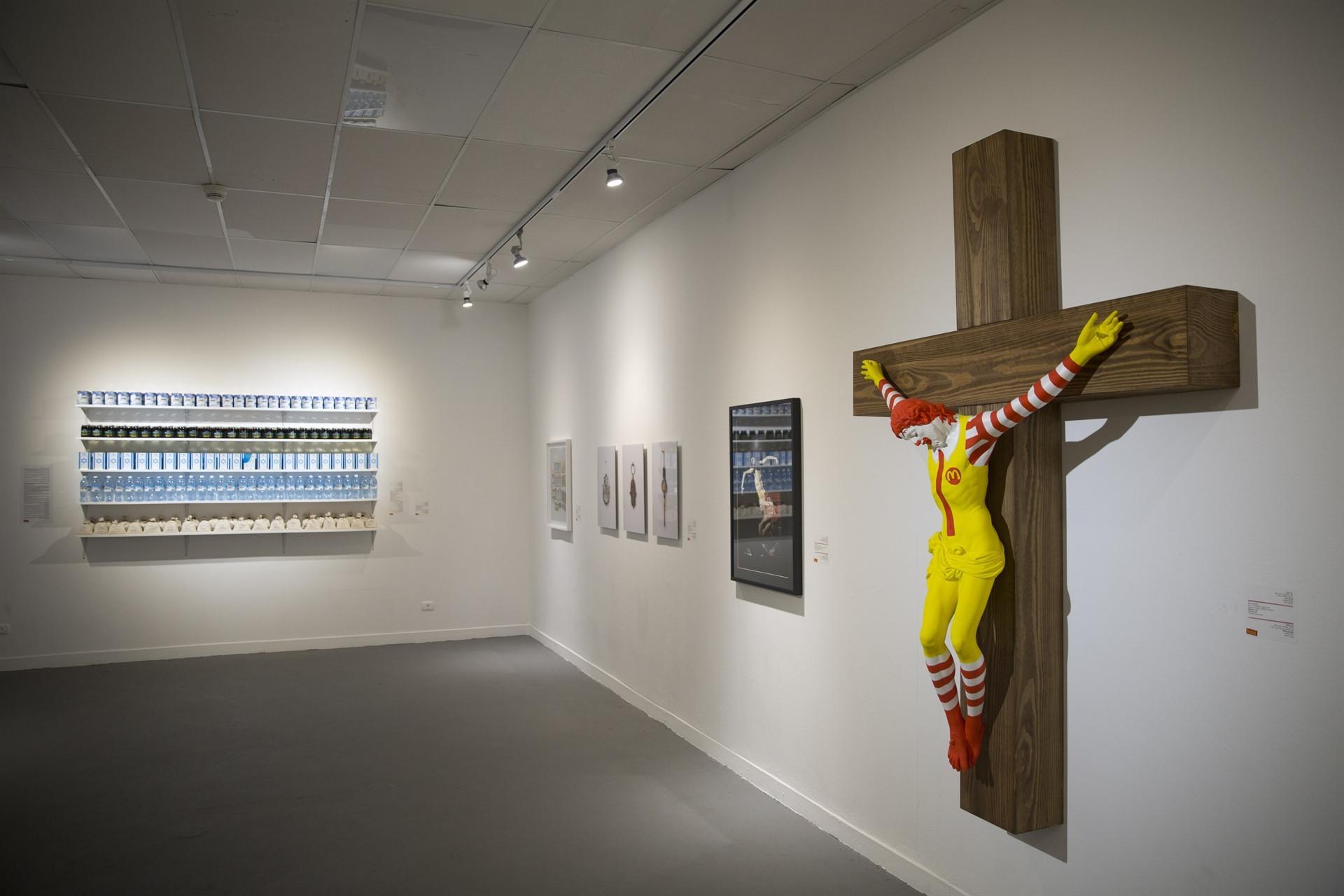
A fast-food clown nailed to a cross has united its Finnish creator with Holy Land Christians demanding the artwork's removal from an exhibition at an Israeli museum.
The controversy involves "McJesus," a statue of a crucified Ronald McDonald by Jani Leinonen on display at the Haifa Museum of Art.
It, along with a figurine representing Jesus as a smiling crucified Ken doll, has raised the ire of members of the local Christian community.
The works are part of "Sacred Goods," an exhibition about consumerism running in the northern coastal city's museum since August.
Images of the exhibits began circulating on social media last week, and in a demonstration outside the museum protestors wounded three police officers with stones.
Two molotov cocktails also hit the museum in recent days, police said.
After a series of meetings with Christian leaders, the museum resolved to install signs warning of "offensive content" at the exhibition's entrance, a spokeswoman for the institution said Jan. 14.
The proposed solution, however, did not satisfy Christian leaders, who petitioned the Haifa district court to order the museum and municipality to remove "McJesus" and "Ken Jesus Christ" from public display.
The works are part of an exhibition dealing with religion and faith in the culture of consumerism, the spokeswoman said.
"McJesus," created by a Christian artist, has been displayed "in many European museums," and "is about the cynical use of religious symbols by giant corporations," she added.
It shows how Ronald McDonald "has become a symbol of popular culture, reaching the level of religious worship."
But while "McJesus" might be taken primarily as a critique of capitalism in other parts of the world, in the Middle East such visual imagery was blasphemous, said Wadie Abunassar, advisor to church leaders in the Holy Land.
"We're not in Europe, we're in Israel," said Abunassar. "To us, as Arabs and Christians, this is an affront to our symbols, and we demand their removal."